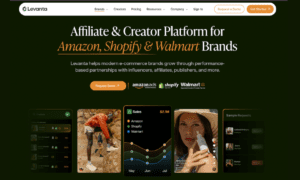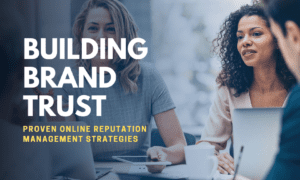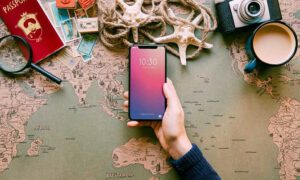The world of marketing has experienced rapid change due to the integration of AI. From generative tools making creation easier to new tools that automate tasks that used to be time-consuming, AI is absolutely everywhere. In fact, experts estimate that the AI software vertical will yield over $1.8 trillion in annual revenue by 2030.
Anik Singal, an entrepreneur and expert in digital marketing, is experiencing these changes in real time. As a consultant who works extensively in this digital sphere, he’s on the front lines of testing AI tools and reviewing their potential utility for marketing operations.
Below are the highlights from a recent conversation I had with Anik, delving into AI’s place in this dynamic industry.
The end of 2022 and the beginning of 2023 was really the beginning of this new wave of AI tools. What do you think sparked the widespread interest in AI?
ChatGPT was the beginning of this new wave of AI interest. As people saw the extent of what ChatGPT could create, everyone started to realize this would be an absolute game changer. I sat on the sidelines for two or three weeks as I saw the buzz grow and grow in my industry. The minute I used it, I became a huge fan as I saw all the use cases I could apply it to.
We’re currently in the midst of developing our own tool based and built with AI. As it’s in a very specific niche, I don’t think anyone else is building a similar tool yet. But, for us, it could save $15,000 or more each month, demonstrating how impactful it could be in our workflow. ChatGPT, especially considering it’s free to use, made everyone realize just how powerful AI could be. People just needed to see for themselves.
There are several spheres where AI is currently being used. What inventive uses of AI have you seen in the world of marketing?
Studies show over and over again that when you make sure to respond to new sales leads within a few minutes, your conversion rates skyrocket. Building operational systems that can engage new leads in your business is typically ridiculously expensive. Now, with AI, I can do that without hassle – it’s endlessly powerful.
I’m also seeing people use AI to write social media content, video scripts, and even do SEO. If there’s a function in marketing, even something like creating ads, then AI can do it. I have a friend who is currently developing an AI tool that can generate Facebook image ads. In almost every aspect of marketing, AI is already making waves.
Personally, the area that I’m most interested in with marketing and AI is the ability to personalize content. Personalized communication for engaging with leads can drastically increase conversion rates across the board.
Not everyone is completely comfortable with new technology. How do you recommend that marketing teams adapt, adopt, and become proficient in AI tech?
When a new technology arrives on the scene, it’s definitely overwhelming. Select something that’s low intensity and low risk to start with. For example, if your team currently posts to social media two or three times a day, then you can try letting ChatGPT write one of those posts each day.
Feed it examples of your past posts and get it to write some low-risk samples for you. You could do this on anything, from social media posts to email chains that you send out. The most rudimentary and simple use cases are when it’s only doing a part of the whole. You don’t want it writing whole content pieces for your blog, nor are you building a chatbot that takes immediate action.
You can start off with basic outputs that you can review before posting. Giving yourself time to review the content will help you ensure that anything that reaches your customers is completely approved. Over time, you’ll become more comfortable with using AI tools, cleaning up its outputs, and increasing your confidence in its outputs.
What are some obstacles that you notice with artificial intelligence?
I find that AI takes a lot of time to adapt to your voice. Even at its best, a lot of it still sounds overly formal or robotic – it’s still not quite there. Equally, you can’t trust that what it generates is 100% accurate. Of course, it could sound convincing and accurate, but we’ve already seen that it can confidently say completely the wrong thing.
AI is trained on a huge amount of information. It uses this bank of information to comb through, find a response, and then output it back to you. Some people argue that ChatGPT isn’t really even AI but rather more like a really creative search engine. True generative artificial intelligence is calculative and will generate answers based on knowledge like a human would.
I think for AI to truly create content for me and replace large portions of my marketing, we still need to bridge the gap to that next level of generative AI.
On the flip side, what are the areas where you’re seeing AI have the biggest impact? Is it all about efficiency, or are there other benefits and advantages to AI?
The areas that I’ve seen and that are really aggressively adopting AI have actually nothing to do with marketing. The health and legal industries are incorporating a huge number of AI tools, more than other industries combined. If you think about it, the level of accuracy and precision they need makes AI a no-brainer.
A lawyer who’s been working for 12 hours a day might miss a few clauses in a contract because he’s tired. AI won’t do that. It’s a computer, so it won’t get tired or make mistakes. If a doctor is reviewing a radiology film, they could miss something. AI is trained on recognition and can rapidly find something that the doctor misses, no matter how small.
The same goes for its ability to compute large amounts of information. If you take someone’s blood work or their DNA, AI can compute millions of data points and come up with complex matrices that can offer customer medication, customer diagnosis, customer treatment plans, and more.
Instead of just efficiency and accuracy, AI’s main advantage is its thoroughness. It’s able to offer a level of completeness that a lawyer or a doctor never could. We simply cannot compute all of that information without help from technology. By leveraging AI, we can boost our own capabilities. For example, we used to try and publish three articles per day, with each one optimized for a specific keyword. It was barely possible to write that in a day, three articles taking us a week. Now, we can do 21 a week with ease.
AI can improve the lives of humans because it can compute more data, generate more content, and won’t make mistakes. AI doesn’t get tired and will only get more accurate as we continue to improve it.
What does the future of marketing look like? Do you see the industry completely changing over the next few years because of AI?
The marketing industry is definitely going to shift over the next few years. I see content becoming much more personalized for the customer, creating more intimate experiences. As larger companies like Amazon, Facebook, and Google increase the levels of personalization they offer, audiences will start to expect this from everyone.
Smaller companies will be able to turn their customer data into unique ways of speaking to certain clients. By customizing every interaction with the audience, we’re able to answer questions faster, provide better recommendations, and more. Everything is going to become more and more personalized for everyone, creating a better space for all.
There aren’t enough people talking about the customization ability that AI will give to the marketing industry. Relationships are driven by personalization, with AI facilitating these connections. It’s ironic that AI is a robot, which is the opposite of a relationship, but I predict that AI will make creating that feeling of connection truly scalable.

































